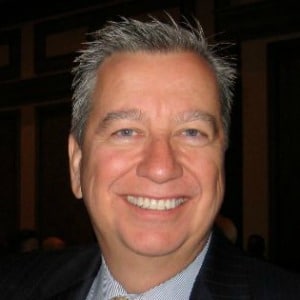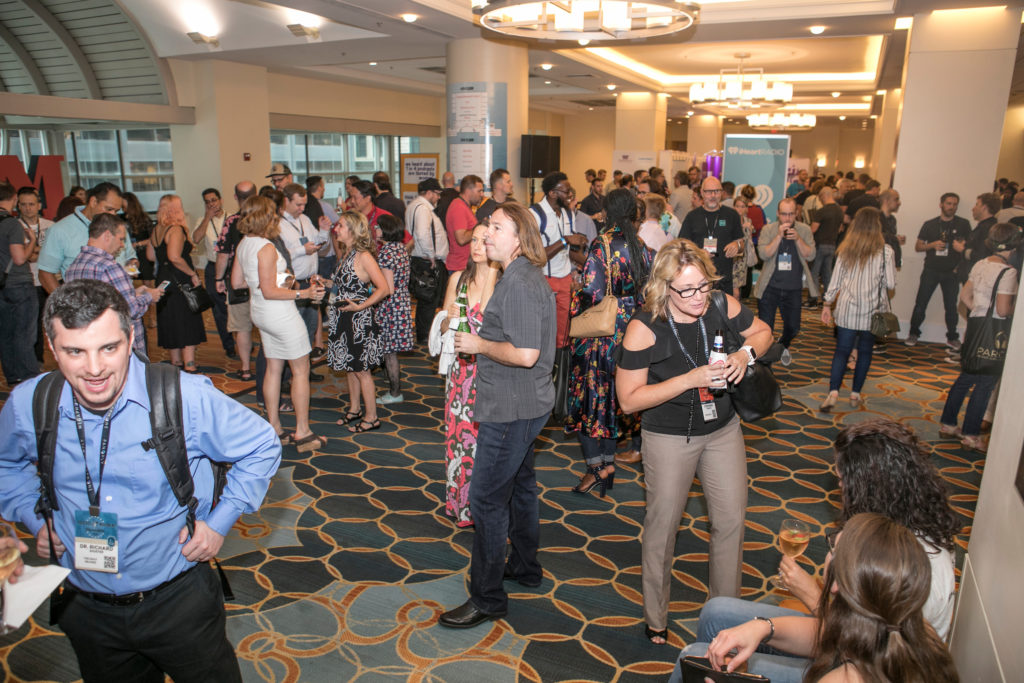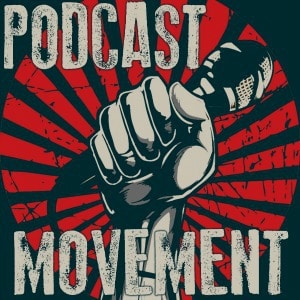
(By Radio Ink Chairman Eric Rhoads) In 1999, I stood in front of a series of investors at a venture capital firm, and I laid out a plan for a new business, something I told them was the next big thing in radio.
I had gone first to radio companies but had doors slammed in my face. So I went to Silicon Valley and raised many millions of dollars on the concept.
What was the concept?
My belief was that the next big thing was like a newsstand, with many magazine titles and subjects … in the form of audio. I suggested that every tribe, every interest group, would listen to a radio station about their specific interest, and I had developed technological solutions that would allow them each to create their own niche broadcasts.
Once the money was raised, we went to work on a company that I called RadioCentral. It was to be a portal, much like iTunes, where all these different “radio stations” would be found. If you were a cop, you could find cop radio. If you were an author or a doctor, there were multiple channels for you. Though my company went down with the towers on 9/11, the concept would take off. Just bad execution and bad timing on my part. As Roy Williams often says, “Eric, you’re always a little too early.”
If you stop and think about it, this was what became podcasting — but that did not come about until many years later. And, frankly, there were no iPods until about three or four years after RadioCentral shut down, and it was iPods that eventually enabled podcasting to get traction and distribution. Apple’s way of approaching it was better than mine, yet the concept is identical. Anyone can have their own station, and people can find content for any interest. And podcasting is thriving.

This week Radio Ink was at the giant Podcast Movement conference in Philadelphia, which was packed with nearly 2,500 people — it’s probably equal in size to the Radio Show. Let that sink in for a moment. A little industry no one in radio ever thought would amount to anything has its own massive convention, equal in size to our own. And what’s exciting is that it’s filled with invigorated people, and sponsors clamoring to spend money. This is a conference filled with happy, upbeat people, and podcast listening has been soaring.
Respectfully, can you tell me the last time you saw that level of excitement and innovation in radio?
I thought so.
While we in the commercial radio industry had the chance to get a leg up in podcasting, create new shows and content, and own it with massive worldwide distribution — something I begged the industry to do — we ignored it. “It’s not radio,” I was told. “They don’t have transmitters. No one will ever listen to it.”
Unlike commercial radio, NPR had vision for podcasting. Instead of creating lame podcasts that were repeats of their morning shows, they created custom, story-based content, heavily promoted it, and became the belle of the podcasting ball. NPR podcasts are among the biggest, and probably the reason podcasting has grown so fast. All because former commercial radio programmer Jarl Mohn (who used to be called Lee Masters) insisted on creating custom content, invested in podcasting, and used his platform to promote it. Meanwhile, radio stations told me, “We don’t want to promote our podcasts on the air. It might confuse our audiences.”
A year ago, I launched a podcast for a niche industry we publish in. Without much help, it’s up to almost 400,000 listeners, which is bigger than a lot of radio audiences. That’s after just one year. And it’s generating significant income from the business it’s bringing to us.
Is it too late for you? Certainly not. If I were a big radio chain or a small radio company, I’d set up a division, hire a team, create dozens of national podcasts, and promote them to my massive radio audience. It’s leverage you have that most podcasters don’t. And if your answer is “There’s no money in it,” just know the same thing was said about Google and Facebook and Amazon.
Advertisers are clamoring to be in the uncluttered environment of a podcast. But before you think, “I’ll tell my program director to come up with something,” just know this isn’t radio and should not be treated the same as radio programming. Dave Ramsey could have let his radio team do his podcasts, but instead he hired a separate team with separate specialties. You should too.
“Why bother?” you ask.
Because radio needs innovation, needs something fresh and new, and needs new sources of income. Why not?
Of course, the answer will be, “It’s unproven, and too much of an investment.” Which of course is why the radio industry is facing some difficult times today. We’re trying to cut our way to success and don’t want to invest in anything new until it’s proven, and by then it’s too late.
Folks, we can’t cut our way to prosperity, but we can jump on new things, embrace them, and learn from the experience. We’ve developed a bad habit of firing the expensive people with talent and experience and replacing them with people who are being asked to produce the same results without the chops to pull it off. And we wonder why things are not going better.
As an industry, radio needs reinvention. I know there is lots of evidence that listening is still with us, even growing, but there is ample evidence to the contrary as well. And as predicted, advertising is the big problem as agencies continue to get seduced by other options (including podcasting).
We should take a lesson from the film industry. It’s not cutting itself to success. It’s investing in new films, new ideas, and expensive talent. And instead of sitting on old theaters, theater chains are investing in remodeling, comfortable lounge chairs, putting in restaurants and bars. If they were owned by radio companies, they would be using 50-year-old popcorn machines, refusing to upgrade to digital movies, and using the old seats until they fell apart. And we would have one employee selling tickets, working the snack bar, and running upstairs to run the projectors.
Though I don’t mean to offend anyone, and I know radio has special circumstances like horrific debt, it’s an important point that we as an industry need to understand. Radio needs to decide what we will be: old and tired, or fresh and invigorated?
Podcasting is a great starting point. With the power of radio, you can dominate listening across America fast. But there is more innovation needed. If we continue on this path of cutting and refusing to innovate, we are committing suicide just like the newspapers did. We need to think differently, act differently, and make sure we surround our leaders with bright, innovative people who can help us improve our relevance and make us better.
Radio isn’t dead. Far from it. But nothing lasts forever without a shot in the arm and some new ideas. I for one love radio, love its relationship with listeners, and love what it has been and can be.
Where is the leadership in radio that will take it to the next level and buy it a future?
Eric Rhoads is Chairman of Radio Ink Magazine and can be reached at [email protected]






It’s funny how for years The radio industry sneered at talk radio as a financially viable format, but now are fawning over the podcast movement.
I have a suspicion – a result of years of legitimate doubt, disappointment and paranoia – that radio showed up at the pod convention, not so much to learn, but more to figure out how to exploit the phenomenon. This would be at the expense of the participants.
Demonstrating, once again, that you didn’t actually read any of the other articles that described, in detail, what people like Ginny Morris of Hubbard or Caroline Beasley were doing. Just read the other articles. Obviously YOU didn’t attend this conference, where YOU might have learned something too.
So the editor of Radio Ink wonders where the leadership in radio was, and just two articles down, his staff wrote the answer in a column titled “Why Was Radio Out In Force At Podcast Movement.” If anyone read that article, they’d get the answer to Eric’s question, because the article listed a bunch of radio company CEOs who were at the seminar. Unfortunately there are no comments for that article. But there are four comments on this one. Obviously none of the commenters to this article read the other one. Maybe that headline didn’t say what commenters want to hear. Because in point of fact, there were a LOT of radio leaders at Podcast Movement. All you have to do is read the other article.
As to Eric’s title question:
They (the most influential executives) are in the bar on the company expense account – telling each other how spectacularly awesome each other is, and that all that is really required is “the story” be spread around harder and faster.
If it weren’t for the tens of thousands of careers being crippled or suppressed, it would be worthy of at least a few satirical giggles.
But, I also note that nobody else is laughing.
The reason radio is in this sorry state is greed. It deserves to die. Just let it already.
Good article, Eric. Congratulations on the success of your podcast venture.
Good luck, radio…my guess is it’ll never happen inside the industry. It’ll be interesting to see what rises from the radio ashes once the whole house of cards collapses.
Not only have radio’s ownership and management groups abdicated their responsibilities, they have rejected all opportunities to improve the medium.
Another example of that from a different context would be, oh, I dunno – Congress?
What are the chances, I wonder, for radio’s ownership to have a “come to Jesus” moment; repent, and, like Paul of Tarsus, forever more, walk the path of righteousness?
Facts, evidence and the benefits that can come from applying the concepts of critical thinking seem to be the hallmarks of only those of us who are part of the “Hopa-Hopa” clan.
Our crops, meanwhile, are parched and withering in the fields while the rest of us engage in wishful thinking – hoping for a “bringer of rain”.
That is what is also going on in say, oh, I dunno – Congress?